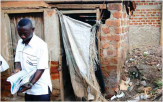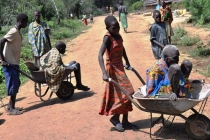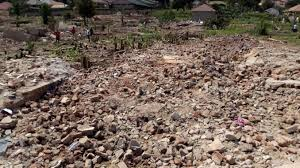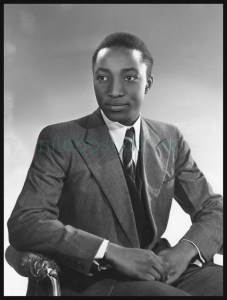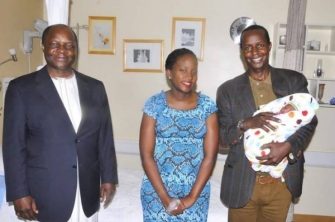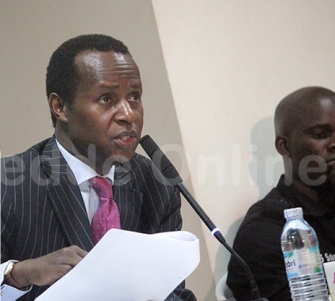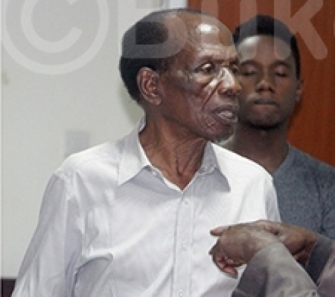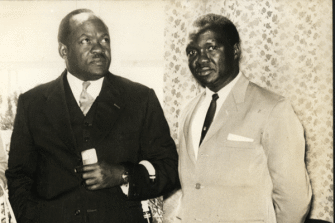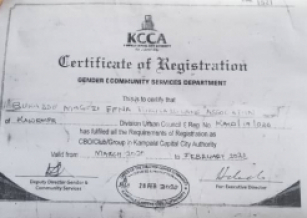
Youth attending a conference in Kampala recently
Nine years ago, my longtime friend Atwooki lost a grandmother. The 82-year-old succumbed to malaria.
With her angelic smile, Abwooli Kabajungu was my grandmother too because of the brotherly friendship I have with the grandson. Her motherly advice of encouraging us to work hard and leaving behind a legacy still lingers in my mind.
Abwooli gracefully enjoyed her old age, having saved up enough through her youthful life as a farmer, to enjoy the last years of her life. Not every elderly person has that blessing. If you have lived in Kampala for even a month, you might have seen an elderly person either selling tomatoes, charcoal or working a 14-hour shift in a shop.
While working is commendable, for an elderly person, it should not be a means for survival; rather, a hobby or way of keeping occupied. That is why it is paramount that youths start saving for their retirement as early as possible.
In Uganda, youths are ranked between 18 and 35 years but in this demographic, employment commences around 23 years after they have completed their education at tertiary level. It is shocking to see that some of the employed youth believe they are still too young to save and procrastinate on this safety net for the indefinite future.
Youths should know that savings will, at length, be a source of future survival. Employment is not perpetual, especially in this era where companies are increasingly downsizing because of rising operational costs.
There is an ill-advised sense of complacency that creeps in, when most of us begin earning money. As a worker, you have between 23/4 and 50 years of gathering savings to cater for the rest of your life.
Therefore, the million-dollar question is: can the current youth lifestyle choices ensure old-age security? The majority of Uganda’s youths have long fallen into the habit of wasteful spending, indulging themselves in alcohol and drug binges and parties.
According to police records, 2,463 adult males and 151 adult females were involved in narcotics or drugs in 2017. The drug vice is eating at today’s youths and a quick and permanent solution ought to be found in order to numb this habit. These shortcomings among the youths are deterring their efforts for growth.
At the moment, Uganda Retirement Benefits Regulatory Authority (URBRA) has devised various ways for people to cater for those ready to save for the future without feeling the pinch.
One much scheme is the National Social Security Fund, regulated by URBRA, which deducts five per cent off your salary, is bolstered by your employer who adds 10 per cent to be dedicated to your retirement savings.
The savings are entitled to interest earnings on an annual basis, which will be given to you at 55 years, upon your request. Last year, members of NSSF earned a 15 per cent interest on their savings attributed to the good performance of the fund.
While NSSF caters for those formally employed or previously formally employed, URBRA licensed Mazima and KACITA retirement schemes that allow the informal sector to save for their retirement.
In many aspects, Uganda’s informal sector, which makes up 80 per cent of the country’s labour workforce, has lagged behind in terms of saving for retirement. Through the years, the informal sector schemes have given opportunity to the informal community to save for the future. These savings are also subjected to interest earnings since their savings are invested.
One may want to argue that many youths are unemployed, which is true. According to the Uganda Bureau of Statistics, 13.3 per cent of the youths in the 18-30 age group are unemployed.
In a bid to support the unemployed youth, government has introduced many projects aimed at helping youths acquire skills to create their own jobs as well as seed capital for businesses. The projects are also not in isolation of the private sector which has strongly empowered the youth to acquire skills and knowledge to prosper.
It is now incumbent on the youth, especially those in the formal education system, to seek experience prior to completion of university. For instance, if youth started volunteering and interning while in their first year at university, they would graduate with at least three years’ experience in their work of interest.
So, fellow youth, old-age security is guaranteed on savings accumulated through your youth, which calls for hard work and planned spending.
The author is the Communication & Public Affairs Officer, URBRA.
Nb
This article is good as it wakes up the youth of Uganda to their future of old age by 2050. The best these current African governments can do is to produce a report about old age in Africa. This report must relate to the increased old age citizens in most of the developed countries. In these countries their system of support for old age citizens is not about the elderly having saved lots of money. It is all about how the whole system of welfare in these countries gives the struggling elderly a share in the basics of life.
Many of these unemployed African youths with their high cost lifestyles end up putting money in the revenue chests of the country's treasury. The responsibility of the current governments is to invest this revenue in the future good of its population. When these youths are old and done by 2035/40, there will be hope then that this country will have better services to support the weak elderly, the poor, the sick and the infants of the next generation of 2060/80 future years!
